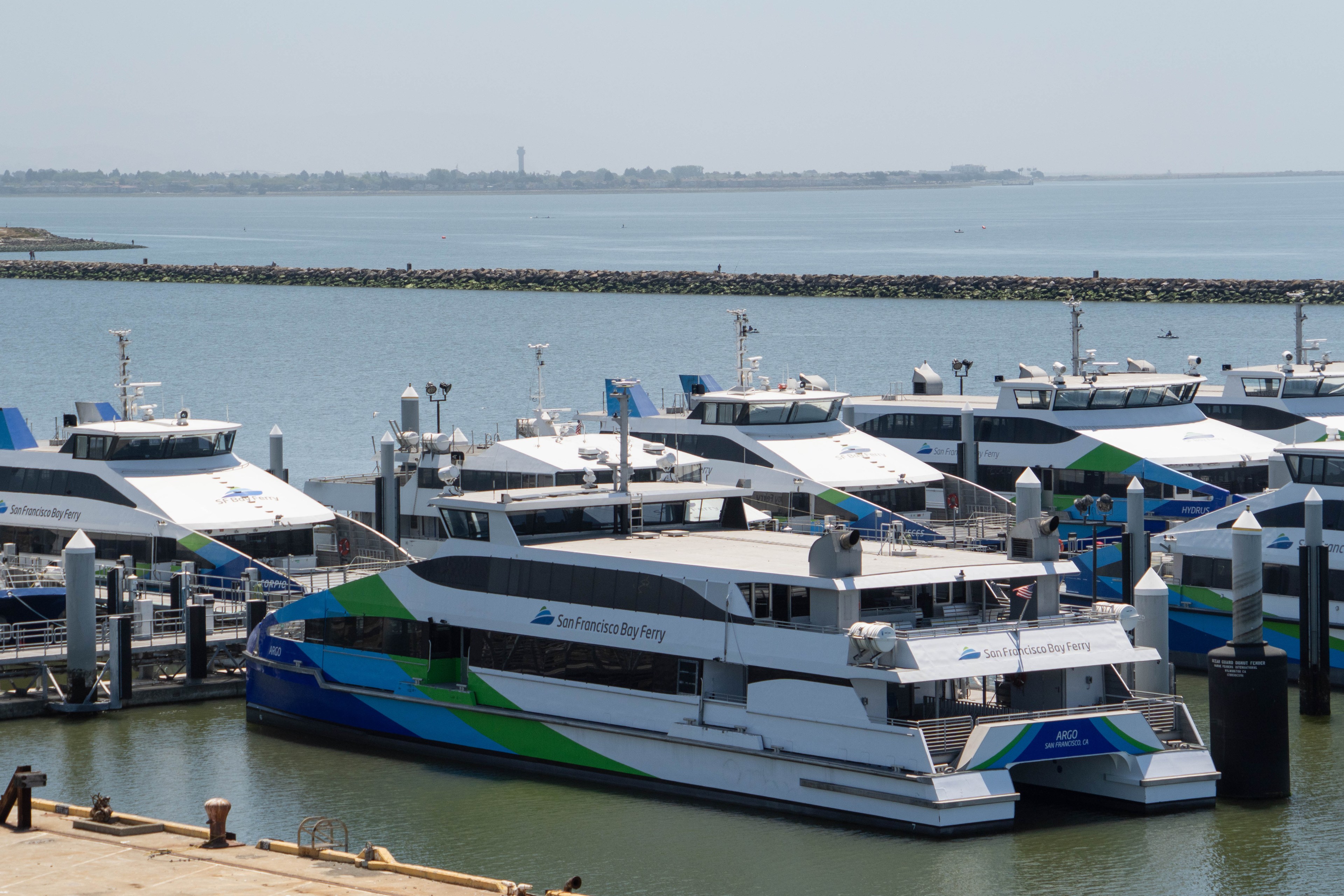The San Francisco Bay Area Water Emergency Transportation Authority and the Golden Gate Ferry will receive about $22 million to retrofit two of their existing ferry floats in Alameda and San Francisco and replace the landing at Sausalito Ferry Terminal.
The money is part of $220 million in grants announced Thursday by the Biden administration to modernize the country’s ferry systems.
The grants “will help transit agencies around the country buy and retrofit vessels, upgrade terminals and modernize equipment,” Nuria Fernandez, administrator of the Federal Transit Administration, said at a news conference at San Francisco’s Ferry Building.
The Golden Gate Bridge, Highway & Transportation District will receive $6 million to replace the Sausalito Ferry Landing in Marin County, built to reduce traffic congestion across the Golden Gate Bridge. The new landing will replace an aging float and improve safety and service.
The San Francisco Bay Area Water Emergency Transportation Agency will receive $15.9 million to retrofit two ferry floats with battery energy storage systems, the transit administration said. The upgrades will improve service, reduce emissions, improve air quality and reduce electrical demand in downtown San Francisco and two terminals in the City of Alameda, Seaplane Lagoon and Main Street.
Other grantees include ferry operators in the territory of American Samoa and the states of Washington, Alaska, Maine, Michigan, New Jersey, New York and North Carolina.
The New York City Department of Transportation will receive nearly $7.5 million to build shoreside terminal infrastructure to enable rapid charging for vessels serving Governors Island, which is only accessible by ferry. The new charging system will reduce emissions, decrease maintenance costs and improve reliability for riders, officials said.
